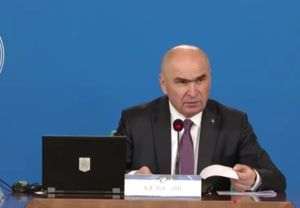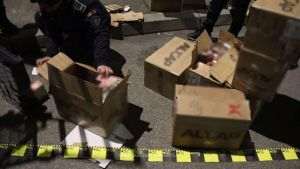Reporter: After SIF1 Banat- Crişana acquired the majority stake in SAI Muntenia Invest, and SIF Moldova announced its intention to acquire the rest, an alliance between the three SIFs seemed to be shaping up between the three SIFs. What are the other SIFs doing in this context?
Mihai Fercală: As far as I know, SIF Moldova has not yet acquired the remainder of the 49% of SAI Muntenia; even if it were to acquire it - though I see no reason to do that - that would not immediately imply an alliance between the three SIFs. Even if such a coordination of their actions were to take shape, I see no problem for SIF3 and SIF5; on the contrary, shareholders of some companies could make claims of concerted action.
I think that the SIFs are independent entities, which are competing in the market, and only under certain circumstances could they act "in concert" to achieve certain common interest policies.
Reporter: SIF Transilvania had the biggest profit of the SIFs, after nine months, but its NAV fell, following the sales of companies in its portfolio. What is the strategy of SIF Transilvania for next year? What changes do you expect to take place in the portfolio?
Mihai Fercală: SIF3 had a bigger profit in 2013 than in 2012; it is true that the NAV fell, but this drop is the result of an obligation to pay a significant volume of dividends, of 17.5 bani/share; in fact, after ten months, the net asset fell only 7.68 bani/share, compared to the dividend duty of 17.50 bani /share. In reality, the net assets increased, if we don't take the payment of dividends into account; in order to pay a large volume of dividends, we had to sell some assets to create liquidity. Basically, after ten months, if we do not take into consideration the obligation to pay dividends, the net asset has increased.
In order to correct this kind of influences in the future, we have changed the portfolio management strategies, attempting a radical restructuring of the portfolio, a shifting of the weights of the various assets to mitigate the inadequate evolution of the stock market - especially the drop of stock prices compared to the previous reporting periods (the period when the shares were acquired).
We are also implementing other strategies for growing our portfolio, especially the NAVPS and reducing the gap between the price the shares are trading at and the NAVPS.
Reporter: How do you evaluate the activity of SIF Transilvania under dual management, the system which the company switched to this year?
Mihai Fercală: The change of the management system was intended to allow compliance with the best practices of the corporate governance on a global level. The dual management system adopted by the General Shareholder Meeting of shareholders is making it far easier to hold the general shareholders meeting, as well as the supervisory board responsible, it increases the transparency of the decision making process, in the case of both management bodies - the Supervisory Board and the Directorate, makes it easier to make decisions, it clearly outlines responsibilities, it manages the policies concerning the management of the investment risk more efficiently. The dual management system leads to a fairer distribution of the rights and responsibilities of the participants in the implementation and the control of the decisions made in the company, to the creation of specific procedures for the implementation of the strategies approved by the shareholders, as well as the control of the compliance of the executives with those strategies, in order to reach the performance approved through the revenue and expense budget.
Reporter: Did SIF Transilvania participate in all the offerings of the state this autumn?
Mihai Fercală: Yes, SIF Transilvania has participated in all the offerings of the state conducted this autumn and has acquired stock in those companies.
Reporter: What is your opinion on the manner in which the offer of Romgaz was structured - shares on the BSE and GDRs in London?
Mihai Fercală: To help the growth of the Romanian stock market, Romgaz should have been listed exclusively on the BSE, with a market share at least double to the one that was initially allocated.
Reporter: How would you describe the relationship with one of the biggest shareholders, Constantin Frăţilă, with whom you have already had conflicts?
Mihai Fercală: The relationship with Fraţilă Constantin is just like the relations between the members of the Supervisory Board and those of the Directorate to which I belong as an executive chairman. Besides, the responsibilities of the directorate and of the Supervisory Board are very clearly defined without the possibility of interference.
Reporter: Mircea Ursache, vice-president of the ASF for the equity market, proposes allowing the SIFs to buy shares of the other SIFs. What do you think about this proposal?
Mihai Fercală: As for a SIF investing in other SIFs, I don't think it is a feasible nor fair solution; see art. 107 index 1 of the law of companies. Such a decision would not be well received by the market and would affect the image of the management of the SIFs.
Reporter: How would you comment on the changes in the management of Sibex, at the last General Shareholder Meeting? Do you think that this exchange can still be saved? How?
Mihai Fercală: The changes at Sibex were predictable. The ones who lost in all this were the SIFs, due to their lack of coordination and strategies concerning this institution. I think that the Exchange of Sibiu must merge with the one of Bucharest. The new exchange could have two trading platforms, one in Bucharest, one in Sibiu, (for derivatives trading). I think that the SIFs must focus on this subject, it is in their interest.
Reporter: In summer, SIF Transilvania proposed to the mayoralty of Braşov the assignment of the city's fortress in exchange for some plots of land and buildings worth about 5 million Euros. What else has been going on with this "deal"?
Mihai Fercală: SC ARO Palace of Braşov has a strategy to restructure its assets, a strategy which was approved first by the Board of Directors to sell some assets and to use the proceeds for new investments. This strategy is being implemented and this asset may be sold, according to the law, with a right of preemption offered first to the Ministry of Culture, and then to the other institutions or to the private investors.
Reporter: How would you comment on the case of the theft of shares, using forged ID documents, from the portfolio of the head of the IFC, Ana Maria Mihăescu?
Mihai Fercală: The problem of the stealing of shares has been around for a long time. The forging of ID documents has not yet been eliminated. The brokerage firms - their employees - can't know everyone personally. If the legal procedures are followed, brokers can't tell that there is a forged ID. Aside from clear trading rules, we need to prevent the forging of these IDs.
Reporter: Some companies wanted to go public; what is the current status of those plans?
Mihai Fercală: The listings of four companies resumed, including on the alternative trading systems. One has already been completed- Transilvania Leasing Braşov. Three more companies are in the process of being listed, and we hope that by the end of January 2014, they will be taken public.






























































